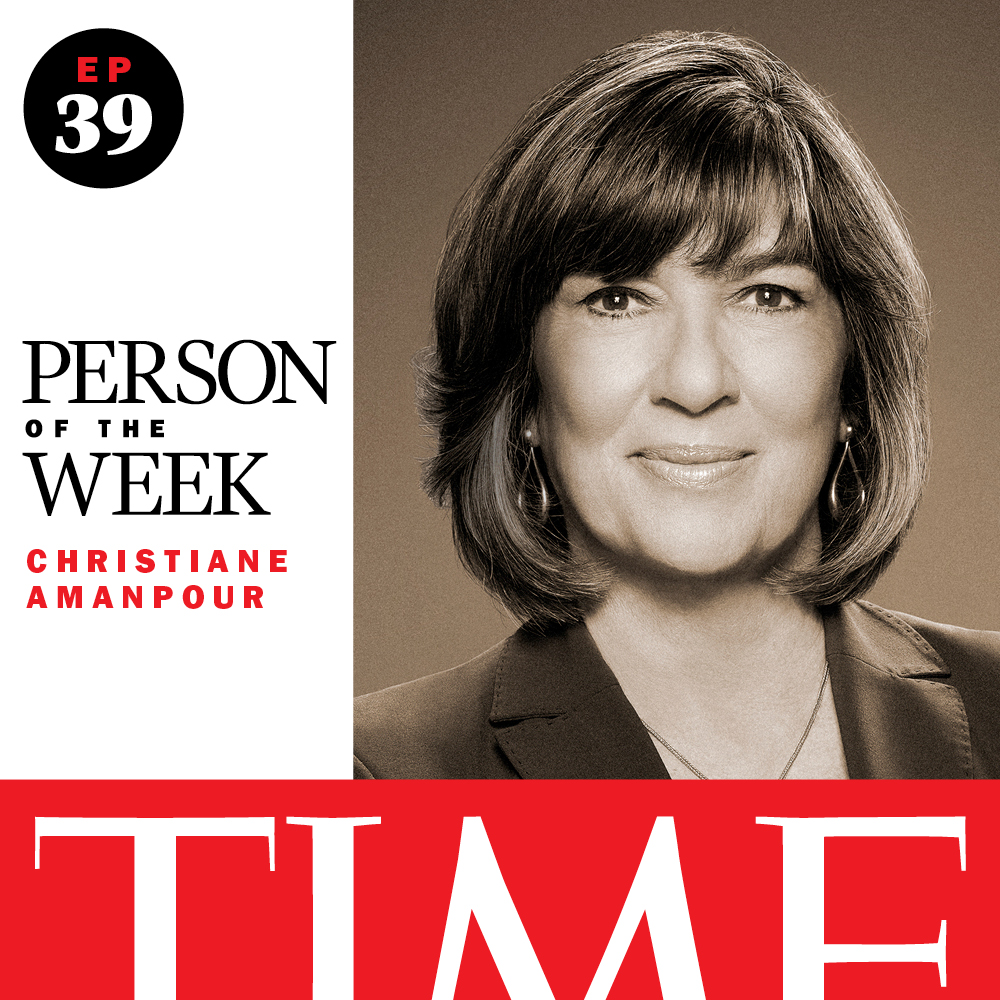Sometimes it can feel like the world is at a true inflection point. And so this week, I’m thrilled to speak with CNN’s Chief International Anchor, Christiane Amanpour, to get a better understanding of this current, global moment.
Amanpour is host of CNN International’s flagship interview show and is a leading voice on how America fits into the geopolitical order. In her 40 years with CNN, she’s interviewed everyone from world leaders to everyday citizens, and delivered on-the-ground reports from conflict zones around the world. She specializes in helping viewers understand the human beings caught in the middle of global conflicts, and how foreign policy and geopolitical shifts shape people’s lives.
Her groundbreaking journalism has earned Amanpour fourteen Emmys, four Peabody Awards, and two George Polk Awards. And on April 12, she’ll be honored as one of the first-ever Polk Laureates — a short list of remarkable individuals recognized for their outstanding contributions to American journalism.
Amanpour spoke with me from London, between a flurry of interviews, meetings, and emails ahead of her nightly show. She offered unmatched insight into Putin’s aggression in Ukraine, the impact of preventing journalists from entering Gaza, and why this particular moment in world affairs keeps her up at night.
Tune in every Thursday, and join us as we continue to explore the minds that shape our world. You can listen to the full episode here, but here are a handful of excerpts from our conversation, which have been condensed and edited for clarity.
On why the world is at a unique tipping point:
I find it incredibly disheartening, frankly, that in 2024 we are at this place where, let’s just say Europe, we have a old fashioned illegal land invasion with the attempted annexation of territory of a European sovereign democratic country by a an imperialist and revanchist Russia. I mean it’s hard for me even to get my head around it. And it’s even harder for me to understand why three years in — I mean, we’re in the third year now, we’re still worrying about whether we’re going to keep providing the support to Ukraine, which is the democratic sovereign nation, that is where the actual battle for democracy, certainly in the Western world and in the Northern Hemisphere, is being wrought. So if we genuinely believe that all the things we’ve been taught from childhood, and certainly from World War II on, are correct, moral, and international values and rules of the road, then there should be no question of how to deal with this illegal invasion.
On what’s so challenging about covering the Israel-Hamas War:
Well, the biggest challenge is in fact the fact that Israel does not allow any foreign correspondents into Gaza, period, end of story, unless they are handheld, embedded or whatever else you want to say, by the IDF and get a very quick in and out, heavily directed guided tour by the IDF. So that’s a major problem. And again, it’s 2024. Israel calls itself a democracy and as a democracy with a historically robust respect for journalism and the diversity of opinion within its own nation, is simply barring access to press from other democratic countries into Gaza. I honestly I’ve never seen anything like it in my life. I’m used to dictatorships, autocrats, you know, military juntas, you know, being very difficult in terms of giving us access. I am not used to a democracy being this obstructionist when it comes to our absolute right to tell the story.
On what keeps her up at night in this moment:
Everything. This is after 40 years, 30 years of actually reporting. It’s 30 years since the Rwanda genocide, for instance. I thought nothing could get bleaker than that: 800,000 to a million people were killed from April 6, 1994, in 100 days, with machetes, clubs, and bare hands. I never thought I could see anything worse than that. But the accumulation of these horrors, and to see this 30 years later, still happening. It really bothers me. It bothers me about leadership. I really, really do believe it’s about leadership. And that’s what I think is, is a terrible, terrible reality.
Since I started as a war reporter, I thought the worst of what I was ever going to see were, you know, the Bosnian Serbs raping, pillaging, sniping, besieging Bosnian civilians in Sarajevo and elsewhere. And now, we’re seeing another worst, and it’s 30 plus years later. So I put it down to leadership. Sorry, I do. I do put it down to leadership. And we are crying out — from the West to Europe, to the East, to the South, to everywhere — for wiser leadership, better leadership, leadership that doesn’t polarize, leadership that’s not afraid to come to political solutions, and leadership that will continue the fight. Like if the U.S., for instance, gives up now on Ukraine, what is that going to tell you about U.S. leadership?
- Why Trump’s Message Worked on Latino Men
- What Trump’s Win Could Mean for Housing
- The 100 Must-Read Books of 2024
- Sleep Doctors Share the 1 Tip That’s Changed Their Lives
- Column: Let’s Bring Back Romance
- What It’s Like to Have Long COVID As a Kid
- FX’s Say Nothing Is the Must-Watch Political Thriller of 2024
- Merle Bombardieri Is Helping People Make the Baby Decision
